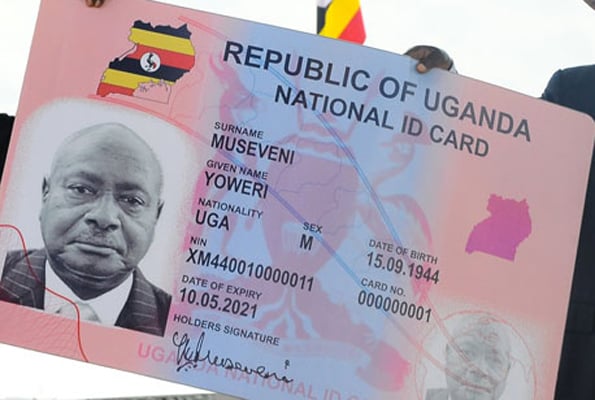Prime
National IDs play a role in peace-building

Author: Cynthia Kyofuna. PHOTO/FILE/HANDOUT
What you need to know:
- Developments that enable movement of citizens within the EAC region should become highly coveted...
Last week, I was invited to speak at a regional multi-stakeholders conference in Rwanda organised by the Great Lakes Youth Network for Dialogue and Peace. The project aims to contribute to peace and stability in the Great Lakes Region by promoting the active, cooperative, sustainable and positive role of youth actions, creating a strong network between them.
My passport issuance was set to happen two weeks from now and so I set out to finally try out the option of using my national Identification card to get into Rwanda. My experience was seamless and not once was I singled out because I had no passport - which for the longest time has been the only recognised travel document. While we try to ponder on what peacebuilding and regional integration might look like, the seamless movement of people across the East African Community with just their national ID is one step towards that integration. When IDs issued by one country are recognised by other countries — whether for face-to-face or online transactions — they become a powerful driver of economic and regional integration, including to promote safe and orderly migration.
For the longest time, the Great Lakes Region of Africa has had and continues to have its fair share of conflict. This conflict usually arises from protracted violent conflicts often arising from politics, human rights violations, effects of climate change, professional opportunities and increasing levels of inequality and above all, an undefined level of diplomacy.
Developments that enable movement of citizens within the EAC region should become highly coveted because they enable the realization of systems that work in our wake to adopt globalization. The use of national IDs at the exit/entry points is clear demonstration that the benefits of a new momentum in the integration process, championed by the three leaders, is continuing to trickle down to the citizens. This has fostered social cohesion among East African citizens and has countered any attacks that might derail peace across the three countries.
While it is compulsory to have a national ID in Uganda (and most of the EAC countries), it is not compulsory to have a passport. Ugandans will strive to get passports only if they are lined up to travel for work, vacation or momentary visits.
The benefit of recognising cards from foundational ID systems as a travel document — particularly within regional blocs — is that they are more accessible and practical than a passport because people should have one by default, rather than a passport that requires a fee and often can only be applied for in major urban centres.
Currently, Ugandans, Kenyans and Rwandans can use their national IDs to enter each other’s countries. This, without a doubt, has been made possible because of the talks to speed up the flow of cargo, construction of the Standard Gauge Railway, crude oil pipeline, refined petroleum products pipeline and any other extra clusters.
We must build confidence in the respective systems in which we are excelling at. The movement of people between countries helps us identify what our common goal should be, what peace and security in the region should look like, Decide policy cooperatively and have an anchor to reform.
Our regionalism must be inclusive and social, environmental, governance risks are managed. We are East Africans.
Uganda, Kenya and Rwanda have presented a good case for what is possible in Africa if the citizens and their leaders are in agreement when it comes to exploring the untapped potential of the region. Youths must be engaged to develop comprehensive policies that will work in favour of interstate movement. While we attempt this, we will definitely require enhanced data and security mechanisms that protect the rights of migrants and address transnational crime. Such efforts will require enhanced dialogue at sub-regional, regional and pan-African levels.
Given that the number of youths is rising, and that this trend is likely to persist, the management of migration is one of the most critical challenges for countries this century, and will require well planned migration policies, which are developed and implemented through a government approach, as well as deepened cooperation with destination countries.
Ms Cynthia Kyofuna is a communications specialist, with interest in policy and regional integration.




